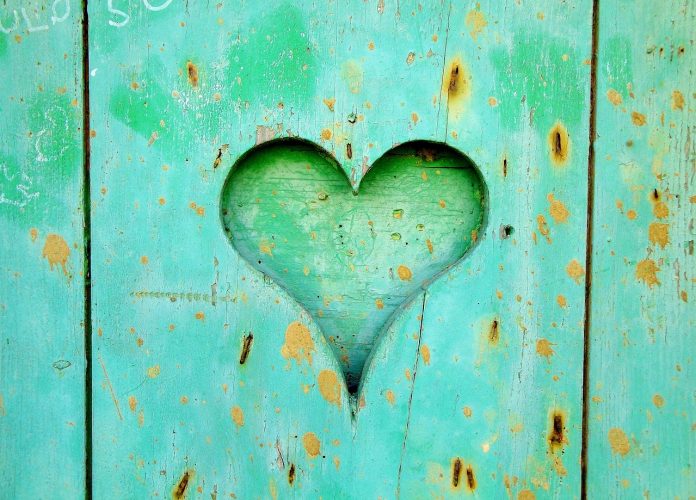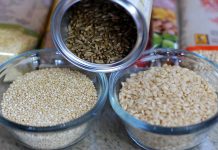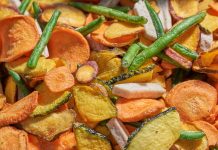
When you say you avoid animal products, I think of no meat, poultry, fish, eggs, milk, cheese or butter. Also, I would think that you are eating vegetables, dried beans, and peas (legumes), cereal grains and fruit. This is called a strict vegetarian diet (vegan).
You state that you haven’t had much energy lately. This can be a result of diet, health, lack of exercise or frame of mind. If you feel physically tired and want to sleep a lot, you should see your doctor to first check out any health problems.
At the same time, you should also look at your diet. Are you eating a variety of fruits, vegetables, beans, peas, legumes and grains foods during the day?
A vegetarian diet is typically a good diet to follow because it can be low in fat and cholesterol and high in fiber. Depending on the foods you choose, it can also be low in complete proteins, iron, vitamin B12, riboflavin, calcium and vitamin D.
If you have been on a strict vegetarian diet, there are some basic guidelines that you should follow. Because you choose only non-animal sources of protein which are incomplete, you may be lacking in one or more essential amino acids. Amino acids are the building blocks of protein and your body uses protein to build and repair itself. There are eight essential amino acids that your body must get from dietary proteins. The other 12 are called nonessential amino acids because your body can make them from other proteins. If you don’t eat a diet that contains all eight essential amino acids every day, you will develop a protein deficiency. This can take some months to happen since your body does have the protein reserves in your body to use for repair. Protein structures in your body are muscles, organs, blood, hormones, and enzymes. The building of protein structures happens from birth through growth until adulthood. After growth is completed, the adult body continually repairs itself by making replacement cells. The Recommended Dietary Allowances (RDA) for males is 63 grams and for females 50 grams of protein.
Meat, milk products, eggs, and soybeans are complete proteins. Other non-animal sources of protein are lacking in one or more of the eight essential amino acids and are incomplete proteins. If you combine two foods that are not lacking in the same amino acids, you have a complete protein. This process of combining two incomplete proteins is called complementary proteins. Complimentary proteins should be eaten during the day to get all eight essential amino acids needed for growth and repair of protein structures in the body. There is a general rule that you can combine a legume (dried bean or pea) with a grain or a legume with a nut or seed to make a complete protein. It is easier to remember this simple guideline than trying to remember numerous combinations of specific foods.
If you are a vegetarian, you could use a software program to track the amino acid content in what you eat. Make a vegetarian meal using nutrition analysis software that has amino acids in the nutrient database and look at the amino acid content total for that meal. If you look at the analysis of each food separately, you can see that one legume (e.g. peanuts) is not lacking in the same amino acid as a grain (e.g. whole wheat bread). Also, 1/2 cup of legumes equals one ounce of meat. To replace one-quarter pound hamburger, you should eat 1 1/2 cups of legumes.
You should also be sure that you eat enough calories per day. Other foods that do not contain protein, like carbohydrates and fats, spare protein from being burned as energy (calories). Then protein is left to build and repair your body. Eat at least 2,000 calories per day if you are at your healthy body weight.
The best sources of iron and vitamin B12 are found in animal products. If you do not eat meat, milk products or eggs, your diet may be deficient in these two nutrients as well. Iron stores in vegans are generally lower than lacto ovo vegetarians. Red meats are the best source of heme iron, which is absorbed better than non-heme iron that you find in vegetables and grains. Both iron and vitamin B12 are involved in red blood cell production. Your red blood cells are responsible for carrying oxygen around your body. You feel tired lately and it could be caused by a deficiency of iron and vitamin B12. If you are a strict vegetarian, you should consider taking an iron and vitamin B12 supplement.
Fortified milk products are a very good source of calcium, riboflavin and vitamin D. Non-animal sources of these nutrients are usually low. Calcium and vitamin D are essential for absorbing and depositing calcium in bones and teeth. A deficiency of these nutrients can cause bowing in the legs of infants and children. In adults, the deficiency of calcium is called osteoporosis, which results in bone loss especially in the spine and hips. It is this calcium loss that results in loss of height and hip fractures. Calcium is also a necessary part of your blood and gives muscles the ability to contract. If you don’t eat milk products, you would be wise to take a calcium and vitamin D supplement daily.
The National Dairy Council in Rosemont, Illinois has an excellent brochure called “Vegetarian Nutrition”. I would suggest you send for it today as it is very inexpensive.



